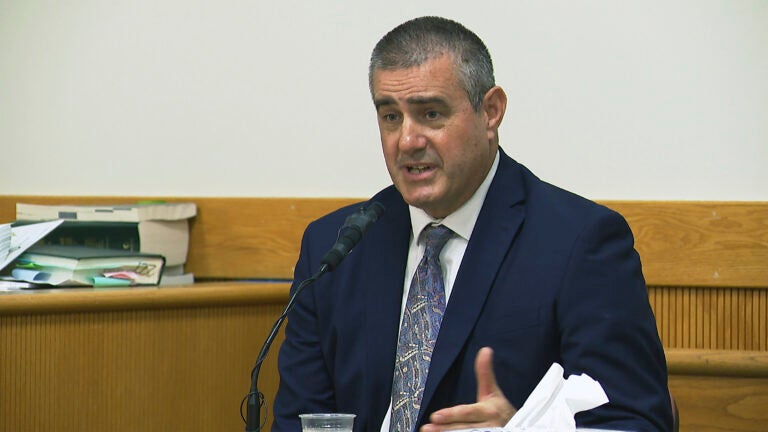
PROVIDENCE, R.I. — In a closely watched trial, a Rhode Island jury has found former high school basketball coach Aaron Thomas not guilty of second-degree child molestation and sexual assault. Instead, Thomas was convicted of misdemeanor battery, a verdict delivered by 12 jurors on Monday, following a nearly six-week trial that captured national attention.
The charges stemmed from Thomas’s controversial practice of conducting “naked fat tests” on male student-athletes at North Kingstown High School, a procedure he had performed for decades. The jury’s decision to convict on the lesser charge of misdemeanor battery rather than the more severe allegations reflects the complexities of the case.
The Trial and Verdict
Throughout the trial, Thomas’s defense team argued that while the tests were inappropriate, they did not constitute a crime. Defense attorney John MacDonald expressed satisfaction with the verdict, stating, “We are very satisfied that the jury saw the case as we saw it, no sexual intent whatsoever.”
Prosecutors, however, painted a different picture. Attorney General Peter Neronha emphasized the impact on the victims, stating, “Above all else, this case is about the victims who suffered greatly behind closed doors.” He criticized the defense’s reliance on pseudo-science as justification for the tests and underscored the criminal nature of Thomas’s actions.
Background and Legal Context
The case against Thomas centered on incidents involving two former students, one of whom was under 14 at the time of the tests in 2000 and 2002. Despite the widespread nature of the tests, these were the only charges brought due to the statute of limitations on second-degree assault in Rhode Island, which is currently three years. Neronha has advocated for extending this limit to 10 years, which would allow for more comprehensive prosecution in similar cases.
Under Rhode Island law, misdemeanor battery carries a maximum one-year prison sentence and a fine of up to $1,000. Thomas is scheduled for sentencing on June 26.
Reactions and Implications
The trial featured testimony from over a dozen students, law enforcement officers, and body composition experts. Thomas himself admitted during his testimony that the removal of underwear was unnecessary for the tests and acknowledged that the method of pinching near the groin was not scientifically supported for determining body fat.
Thomas’s legal team questioned the reliability of the former students’ testimonies, highlighting one student’s mental health struggles and suggesting a financial motive tied to a separate civil lawsuit.
“We’d like to thank the jury for their attention, their hard work, and for their verdict,” said defense attorney John MacDonald.
Looking Forward
The case has sparked broader discussions about the responsibilities of educators and coaches, the protection of student-athletes, and the adequacy of existing legal frameworks to address misconduct in educational settings. The outcome may prompt legislative changes in Rhode Island, particularly regarding the statute of limitations for sexual assault cases.
As the community and legal experts digest the verdict, attention now turns to the sentencing phase and the potential for further civil litigation. The case underscores the ongoing need for vigilance and reform in safeguarding young athletes from abuse.







